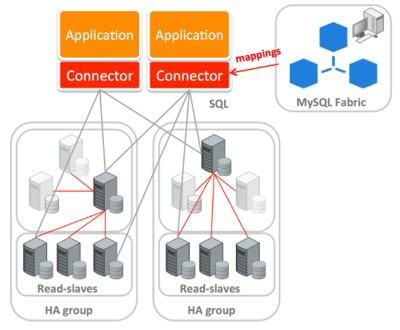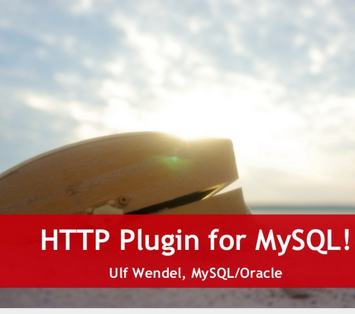| MySQL Extras Released |
| Written by Kay Ewbank | |||
| Thursday, 02 October 2014 | |||
|
Oracle has released a number of additional MySQL releases and early access features. The new releases include MySQL Fabric 1.5, MySQL Workbench 6.2, and a plugin that lets HTTP clients and JavaScript users connect to MySQL using HTTP. MySQL Fabric 1.5 is an extensible framework for managing farms of MySQL Servers. It can now be used to provision servers using OpenStack and also supports additional types of sharding keys. MySQL Fabric gives you automatic failure detection and failover when used with MySQL Replication. If the server for the master database fails, MySQL Fabric selects one of the slave databases and promotes it to be the new master. It also automatically routes transactions to the current master, and provides load-balancing of queries across slave databases.
MySQL Fabric provides high availability and database sharding for MySQL Servers The next area of MySQL to be improved is MySQL Workbench. Version 6.2 adds the ability to migrate databases from Access. It also has improvements to its Visual Explain feature that you can use for SQL statement performance tuning. Another improvement is a new GIS data viewer, so you can view MySQL spatial data better. Another announcement refers to a new plugin specifically for web and JavaScript devs that can be used to connect HTTP clients and JavaScript users to MySQL using HTTP. The plugin, from Ulf Wendel, a Senior Software Engineer at Oracle, is a development preview that consists of an HTTP proxy and three APIs – a key-document for nested JSON documents, CRUD for JSON mapped SQL tables and plain SQL with JSON replies. The plain SQL API lets you send a SQL statement via a URL, returning the results as a JSON document consisting of a meta section containing information about the columns in the result set, and a data section consisting of an array of rows. The CRUD API lets you create a PUT or GET request to either insert, update or read a record. You create a JSON object that supplies a primary key to identify a specific record. The SQL and CRUD interfaces work on relational tables. The JSON Document option is designed to work on unstructured storage in the form of simple key-value tables where the JSON data is stored in a BLOB column. This is being described as a demo of what is possible. In reality the HTTP requests are mapped to SQL internally, and as Wendel says in his blog post about it, the plugin only does what you could already do yourself; it just makes it easier.
Alongside the new plugins and releases, Oracle has announced support for MySQL in Oracle Enterprise Manager, the administration and management utility for public and private clouds. The support means companies using Oracle can also manage MySQL using the same tool. The support is restricted to the Enterprise version. Other ‘enterprise’ improvements include the ability to back up MySQL data directly to the Amazon S3 cloud, and new encryption techniques.
More InformationTo be informed about new articles on I Programmer, install the I Programmer Toolbar, subscribe to the RSS feed, follow us on, Twitter, Facebook, Google+ or Linkedin, or sign up for our weekly newsletter.
Comments
or email your comment to: comments@i-programmer.info |
|||
| Last Updated ( Thursday, 02 October 2014 ) |




